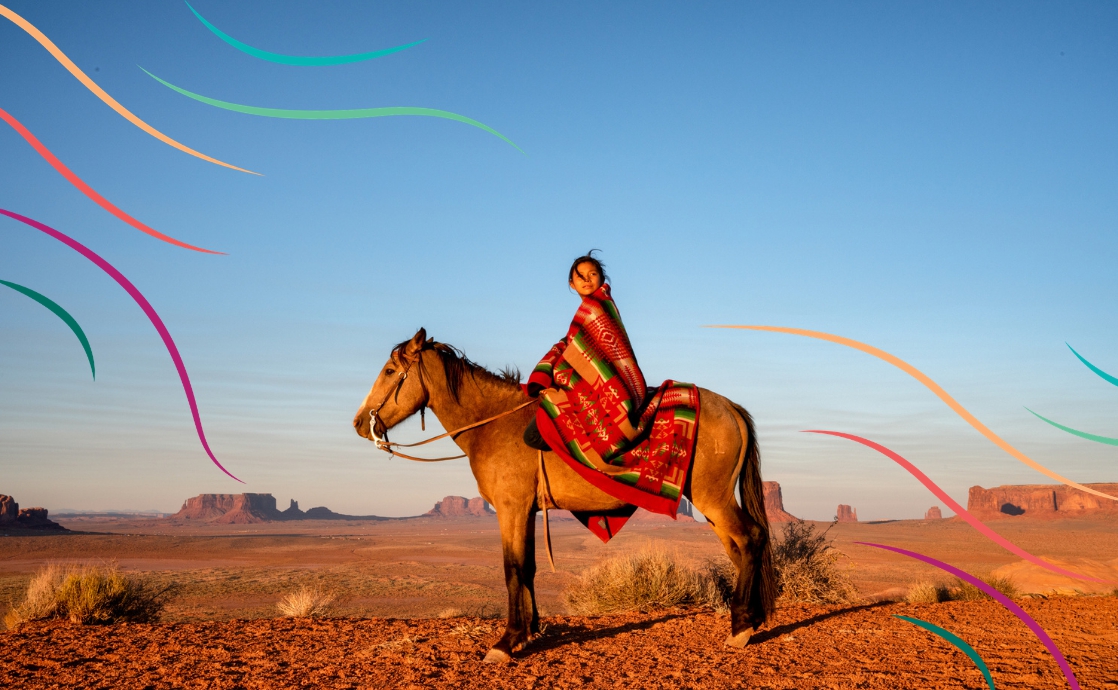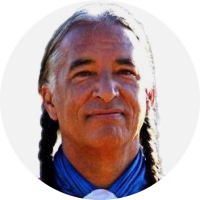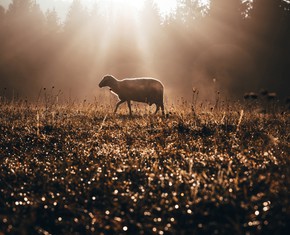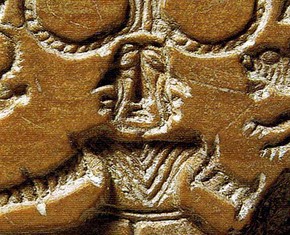The views expressed in our content reflect individual perspectives and do not represent the authoritative views of the Baha'i Faith.
In our continuing conversation between Baha’i author and scholar Chris Buck and Lakota artist, world citizen, and Baha’i Kevin Locke, we look at how modern society can honor and acknowledge the Indigenous peoples.
Q: Kevin, in 1988 the democratically-elected governing body of the Baha’is of the world, the Universal House of Justice, wrote to the Baha’is of Canada, advising them how Baha’is might best recognize, acknowledge, and fortify the rights of Indigenous peoples:
You have also raised a number of questions concerning the rights of indigenous people such as the Natives of Canada. … The implications for indigenous people also include: realization of the virtues of cross-cultural influences; appreciation of the values of other cultures as accruing to the wealth of human experience and the freedom of all to share in such values without necessarily giving up their respective identities; avoidance of parochial attitudes which degenerate into ethnic and cultural prejudices; and, above all, appreciation of the necessity to maintain a global perspective within which the particulars of indigenous expression can find an enduring context.
RELATED: Voices of Earth and Sky – Discovering Indigenous Holy Ones
A: So inspiring, and potentially a great model to follow! Let’s contemplate what our modern societies can do to follow this spiritual advice from the Universal House of Justice, and beyond mere words, turn it into action.
Q: Well, first, as you suggested in our last installment of this series, we can all simply recognize, in all of our interactions with Indigenous and Native peoples, the beauty, validity, and connectedness of their spiritual teachings.
A: Yes, that’s a good start. Here’s my suggestion for that recognition:
Grandfather above, we acknowledge the holy ones you have sent upon this land to kindle the sacred fire in the hearts of us — your grandchildren. We are eternally grateful that, in ancient times, you have sent Deganawida, the Peacemaker, White Buffalo Calf Woman, Breath Maker, Sweet Medicine and a myriad others to breathe holiness and beauty upon this Turtle Island and your grandchildren here, and to teach us Your laws and to enable us to draw close to You and especially to love and cherish our relative, Grandmother Earth, and all that dwell upon her. In particular we acknowledge the holy ones You have sent to the spot upon which we stand and the nations and kindreds who have been the custodians of that sacred trust. We ask that You breathe upon and fan the embers of the fire of love and faith in our hearts and minds, that our footsteps may tread Your path and we may restore peace and order upon this blessed land.
Q: So, Kevin, based on what you have written above, I’d like to propose the following activities for the next round of our ongoing course, “The Great Spirit Speaks: Voices of the Wise Ones,” which will again be offered by the Wilmette Institute, starting on June 3, 2021, and once again this fall at a date to be determined. So please tell me what you think of this list of ideas for how we can begin to recognize and act on the knowledge of the Indigenous history of the areas where we live:
1. Find out about the Indigenous history of where you live.
2. Post the results of your research.
3. Determine whether these Indigenous groups survive today — and where they now live.
4. Find out how to make contact (for later on).
5. Research that particular Indigenous group’s spiritual heritage.
6. Incorporate Indigenous prayers, etc. in services and devotionals.
7. Ask your spiritual community if it would support a local “Indigenous Land and Spiritual Acknowledgment” initiative, followed by social action.
8. If so, as a group endeavor, draft a local “Indigenous Land and Spiritual Acknowledgment” statement.
9. If your spiritual community – your church, mosque, synagogue, temple, or Baha’i community approves – present the acknowledgment statement to the group for consultation.
10. Once the local “Indigenous Land and Spiritual Acknowledgment” statement is finalized, consult on how best to present it to the Native peoples in the area.
11. Make contact with the local Indigenous leaders, whether local or relocated.
12. If contact is reciprocated, ask about the appropriate Indigenous protocols.
13. Follow the protocols.
14. If relocated, follow the example of Republic, Kansas, and invite the original Indigenous inhabitants to return for a festival.
15. Offer to be of service, and ask what is needed most. Wait to be invited.
16. Offer to formally present the local “Indigenous Land and Spiritual Acknowledgment” by organizing a special event.
17. Once set, invite civic and religious leaders as well, and also invite the community and the media.
18. If successful, adopt further Indigenous service as a local community commitment.
19. Develop a social action plan, accompanied by relevant public discourse.
20. Reflect on the how the plan is going, and keep it going and growing.
RELATED: How an Indigenous Artist Views the Baha’i Teachings
Kevin, do you agree?
A: This is an excellent checklist. One idea for social discourse might be to reflect on the recent series of UN “years” and “decades” of focus on various Indigenous topics. 2022–2032 has been designated the UN International Decade of Indigenous Languages. This designation is especially poignant in that North America bears the distinction of having not only the greatest concentration of Indigenous languages, but also being the region of greatest language attrition and loss. What a great contribution it might be to help restore and revitalize lost traditions and languages by inviting communities to come together in unity – and what a healing message it would send!

















Comments
Sign in or create an account
Continue with Googleor